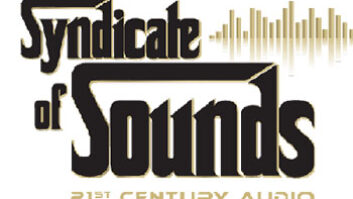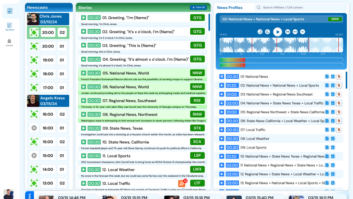Maybe on Oct. 20, maybe later if Congress delays the deadline, many broadcasters that have streamed their programming over the Internet have to write checks to SoundExchange.
Sound who?
Non-profit SoundExchange was formed in the fall of 2000 by the Recording Industry of America Association to collect and distribute copyright and artist royalties for sound recordings.
Such royalty payments were never required for terrestrial broadcast play, but were stipulated to be paid for Webcasting in the Digital Millennium Copyright Act.
The alternative to a collection society like SoundExchange would have been for Webcasters to identify and seek out copyright holders and individual performing artists, then pay them directly.
As the Librarian of Congress notes in his filing on sound recording copyright fees in the Federal Register, “It would be impractical for a (Webcaster) to identify, locate and pay each individual copyright owner whose works it performed.”
Understatement
Judging by the effort SoundExchange has gone through building a database for this purpose, the Librarian’s use of the word “impractical” seems insufficient.
“We had this massive exercise, looking for all of these hundreds and hundreds and thousands and thousands of people,” said SoundExchange Executive Director John Simson.
Though the RIAA founded SoundExchange, its collection and distribution duties extend beyond the major record labels.
Fifty percent of the fees collected go to the copyright owner, which is not always the record company.
“There are significant artists who own their own masters, so they’re the copyright owners,” said Simson.
The artists performing the music split the other 50 percent.
“The featured artists get 45 percent, and then the background musicians and vocalists get 5 percent.”
Two major unions, the American Federation of Musicians and the American Federation of Television and Radio Artists, represent the background vocalists and background musicians respectively, and have built their own comprehensive databases in order to distribute to their members fairly.
While the payments that come due Oct. 20 (or later, if delayed by Congress) will be the first for Webcasters, covering sound recordings streamed between Oct. 28, 1998 and Aug. 31, 2002, they are not the first such copyright fees collected and distributed by SoundExchange.
An earlier piece of legislation, the 1995 Digital Performance Right in Sound Recordings Act, subjected music channel services such as DirecTV and premium cable to copyright payments.
Simson said the hundreds of niche channels on those music services were similar to channels offered by Webcasters.
“(For) our first distribution of those satellite services, which went out last October, there were thousands and thousands of artists – I think over 20,000 individual artists with performances, and there were actually several thousand labels with performances.”
Domination concerns
SoundExchange originally faced criticism that the five major record labels would dominate it. However the organization has board representation from smaller, independent labels as well as performing artists.
SoundExchange membership has grown to nearly 400 labels, including many of the smaller independents. The organization is required to make distributions to all copyright holders, whether they’re members or not.
How much money will be collected in the first Webcaster payment is anybody’s guess, Simson said.
“We heard from a lot of services that they may just go out of business and not pay royalties. So we don’t know what percentage of people are going to pay us, so it’s hard to get a really good, solid number.”
Simson’s best guess is a range between $5 million and $10 million.
“If we get surprised and it’s more than that, fabulous. If not, again, it’s kind of like, my interest is much more on moving forward with the services that want to move forward into the future, and help them so that we have a really thriving new industry of Webcasters who are paying royalties in.
“This is a great new stream of revenue for artists and copyright owners. And it’s a great way for consumers to have a way to listen to music.”
Setting up SoundExchange hasn’t been cheap, but Simson said the organization will amortize some of the start-up costs.
“Rather than unduly burden people in the first year with distributions, they’ll be spread out over five years of distributions.”
He contrasts that to the beginning of the American Society of Composers, Authors and Publishers in the 1920s.
“They had a $600,000 year in I think ’23 or ’24, of which they distributed $80,000.”
Simson aims to hold SoundExchange’s administrative fees in the same range as other collection societies of the same size, between 15 and 25 percent.
“The reason it’s that large a range is, again, the more money that goes through the system, the lower your administrative fee is going to be.”
He predicts administrative fees will run 20 percent in the beginning.
“We see ourselves at around 16 percent by 2005 in our projections, and there’s only reason to think that it will keep going south from there because revenue should be increasing and we’ve built (our operation) very technology-based and very lean and very efficient.”
Once the first, retroactive payments are made to SoundExchange, Webcasters would be required to pay monthly on or before the 45th day following the end of each month.












